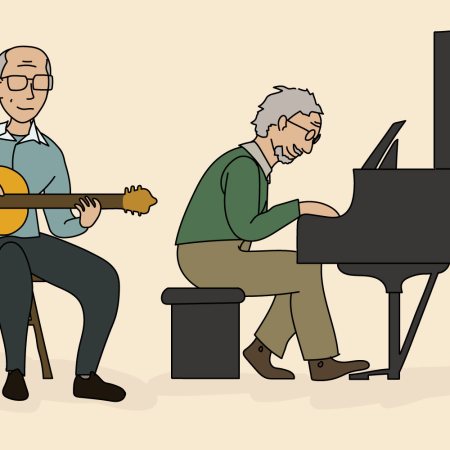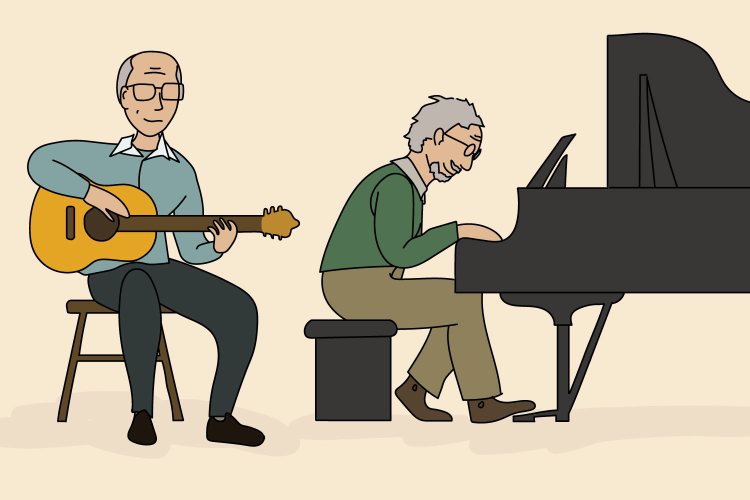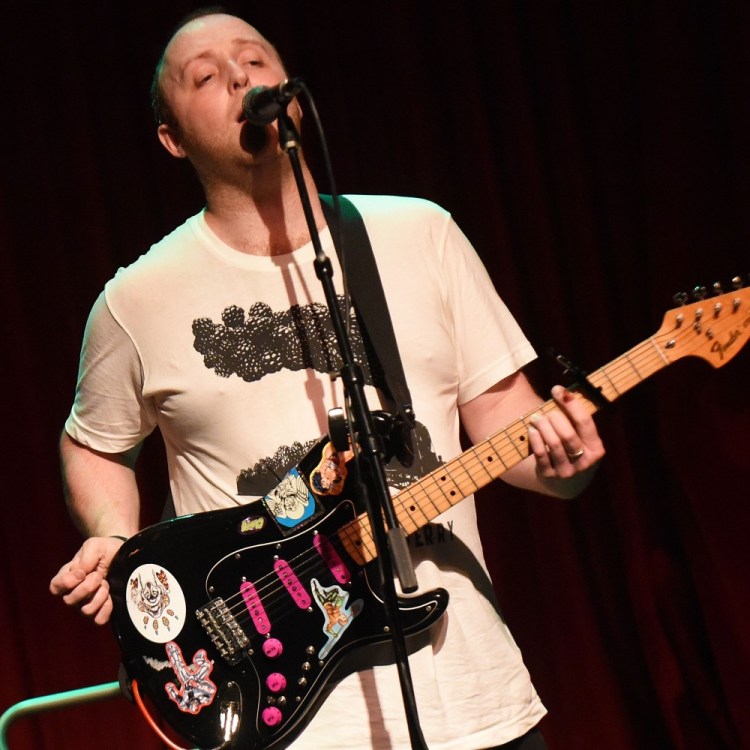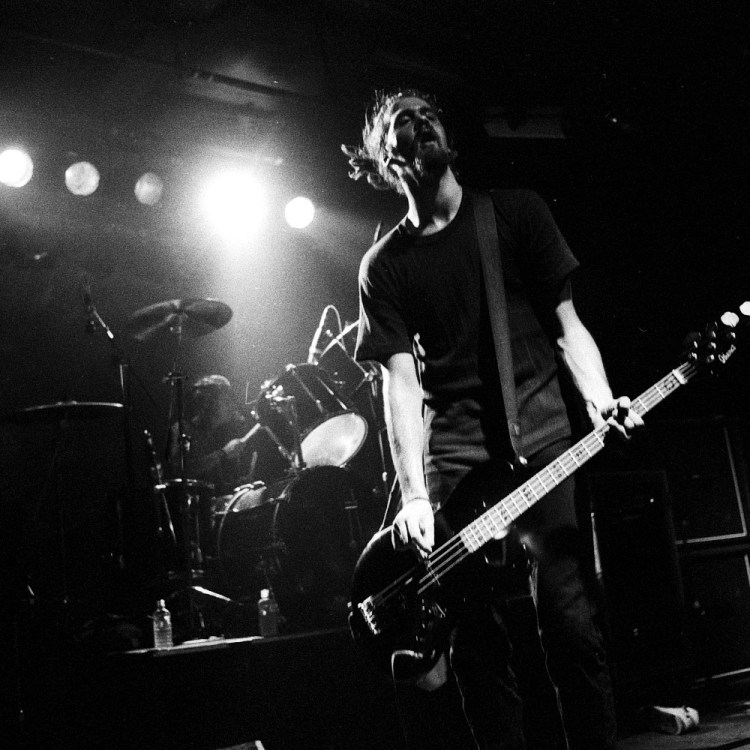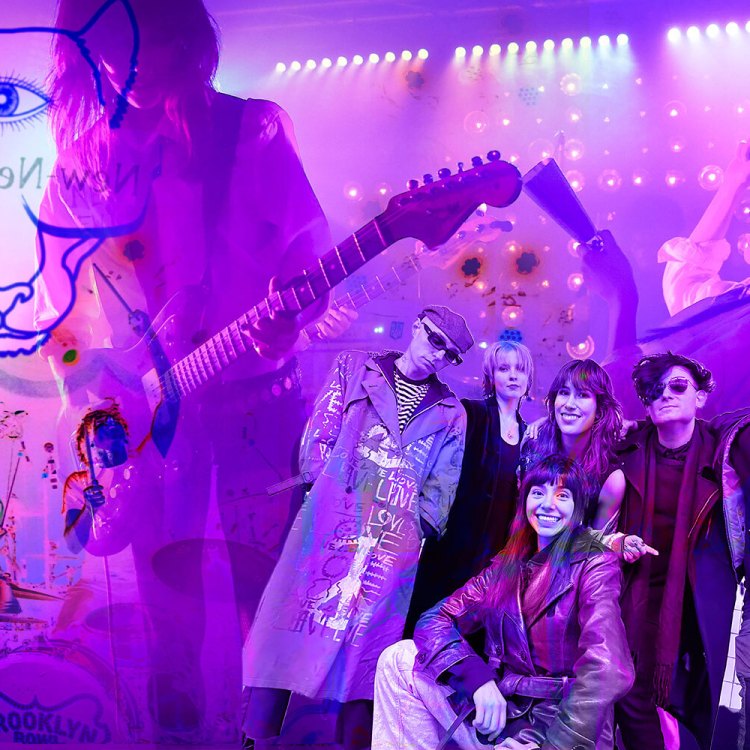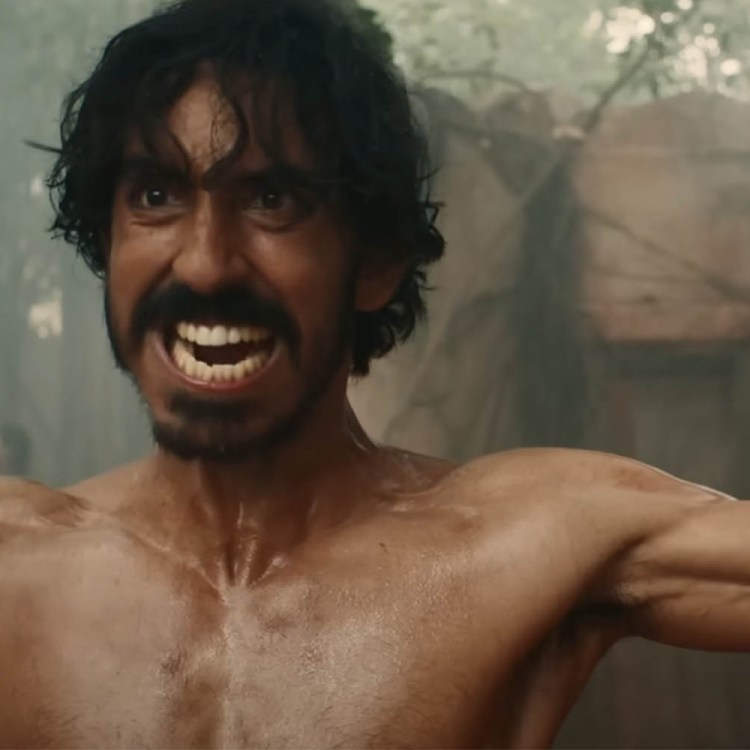In town performing songs from his new solo album, Francis Trouble, the accomplished guitarist traces his life’s problems back to learning he had a long-lost, deceased twin.
It was easy to follow the trail leading from Graham L subway stop toward Bushwick’s 1,800-capacity live music venue, Brooklyn Steel, on Wednesday night. A cavalcade of feet wearing Converse Chuck Taylor All-Stars, suggesting a small hint of on-brand rebelliousness when paired with their wearers’ conservative black and grey work slacks, paced across Metropolitan Avenue in earnest. Wheatpasted onto an adjacent construction site’s temporary barricade wall, rows of posters promoting the fifth solo album and imminent performance of that evening’s headliner, Stokes rhythm guitarist Albert Hammond, Jr. lined the block.
His new album is called Francis Trouble, and its cover image, featuring Hammond’s cartoonish face reappearing inside of itself ad infinitum, couldn’t be more apropos of the sounds and subjects explored therein.
The cover and album title also appears in the form of a backdrop onstage, telegraphing to audiences the name of AHJ’s stillborn twin brother—Francis—whom Hammond didn’t learn about until much later in his life. It takes heapings of courage and chutzpah to perform songs about understanding your addictions and troubles with women through your discovery that you had a twin who died at birth. It takes more chutzpah, still, to put that stillborn twin’s name on a giant backdrop and perform in front of it for a bunch of kids who are just psyched that you’ve made your best record since the glory days of The Strokes.
A question must inevitably be asked—is this album, and subsequent tour in support of it, tantamount to therapy? If Strokes frontman Julian Casablancas has cultivated a theme of nihilism in the ‘found sounds’ bloat of his current band The Voidz and made music about nothingness, then maybe his bandmate, Hammond, has gone the opposite way and made an album about absolutely everything: Francis Trouble is the result of working on yourself upon learning how all of your life’s rough tangents might be rooted in one intense revelation.
The revelations began early onstage as Jim Morrison’s intro to The Doors’ “Soft Parade” played on Hammond and his band with a mock-evangelical spoken word evocation—“You cannot petition the lord with prayer!” and its suggestion that simply wishing for something to change won’t make it happen. Hammond sped up to the edge of the stage, said “let’s make a story,” and clutched his mike as the band launched in to “Caught By My Shadow” off of 2015’s Momentary Masters.
“I feel like from a young age you put things to the side depending on how people interact with you,” Hammond told Paper about the song in 2015, “but you always exist with this other side of you that didn’t really get to grow.” As the evening wore on, eight of Francis Trouble’s ten new tracks were played, and Hammond seemed closer to figuring out what that other side of him was all about.
On new song “Far Away Truths,” Hammond’s lyrics work out why he found out about Francis so late in his life, while the Strokes-y waltz of “Tea For Two” hints at learning to feel everything again following the presence of heavily numbing agents in one’s life.
Though he occasionally picked up his signature Olympic White Fender Stratocaster between bouts of impassioned gyration, guitarists on either side of the stage traded rhythm and lead duties through the majority of the show. Watching his band expertly replicate the recorded riffs, it’s remarkable how signature Hammond’s jittery guitar pop sound has become over the years. By exporting the majority of the duties to their capable fingers, Hammond was free to hop up on the drum riser or the amps, twirl around his mike and pose with his guitar at exaggerated angles of theatricality. This was the hermetically-sealed version of a sound he helped popularize, deployed with intentions far deeper than many realized.
At 37, Hammond’s all but settled into levels of hammy theatricality that rival Leonard Cohen, I’m Your Man-era grandstanding. Lingering agility from his childhood as a professional roller skater must still be intact—he crouched down and edged close to the crowd, making sure to spend equal time flanking all sides of the stage and soaked up being a frontman while the band continued generating the vast majority of the riffs.
When he performed new song “Stranger,” ostensibly about not ever knowing Francis or deeply connecting with other members of his family, the transparency and forthrightness of Hammond’s words were not subdued by the dulcet guitar arpeggio. “How strange the feeling to be strangers,” he mused in a chorus therapeutically sincere. “Battle lines drawn with people, your conscious mind was left behind.”
Who else hurt you, Albert? Francis Trouble’s songs give off the vibe that connects his distrust and fractured familial relationships to not knowing about Francis’ death— “Brother got your lip/Mother make you sick/Your father is a prick,” he sings on opener “DvsL.”
As it turns out, his father, Albert Louis Hammond, is a renowned British-Gibraltarian singer whom Wikipedia notes is best known for his 1972 hit single, “It Never Rains in Southern California.” His mother, Claudia Fernández, was an Argentine model. As mentioned earlier, the young Hammond, Jr. was celebrated as a champion roller skater. What more evidence do you need that growing up wealthy doesn’t guarantee you a happy life, watching Hammond work out his past demons over buoyant, angular guitar pop?
This makes Hammond’s privilege worth noting in context of the themes explored on Francis Trouble. Few have the good fortune of being able to afford a solid therapist, let alone the ability to tour the country and recite words, as therapy, for thousands of adoring fans. This privilege also adds a new dimension to the performance, as the majority of all-ages fans in attendance likely didn’t read a press release or study lyrical annotations online that would lead them to unpack this added layer of deep, sad, backstory. To the contrary, the lot of them just heard this arpeggiated garage pop and were grateful that was likely as close as they’d get to seeing The Strokes live in 2018.
With the blessing of time—it’s been twenty years since he first joined The Strokes while attending NYU, and twelve years since his first solo album— Hammond also has the privilege of making every appearance in front of fans a victory lap.
Much like the Converse Chuck Taylors worn by so many in the crowd, The Strokes maintained their status as counter-culture stalwarts despite the fact that they were always a big, major label-bolstered enterprise and came from privilege (Hammond and Casablancas first met as teens at a boarding school in Switzerland.) Now, emerging from the other side of doing what sounds like a lot of serious work on himself, Hammond has the privilege to use those now-signature guitar riffs as a vessel for putting out some much heavier, deeper ruminations into the universe.
Maybe that explains his cover of the Guided by Voices classic “Postal Blowfish” during the encore, originally performed by a similarly manic and likely much less sober Robert Pollard: “Noticing the change, we are taking time/Everybody knows, everybody’s fine/ And we’ll figure out purpose in the end/Unless we have to jump, unless we have to win.”
Hammond’s still taking his time to work through his rough edges, less concerned with external success or winning than with the progress that comes from doing the work. And no amount of privilege, nor millennial nostalgia trip, makes witnessing that work any less remarkable to behold.
This article was featured in the InsideHook newsletter. Sign up now.










